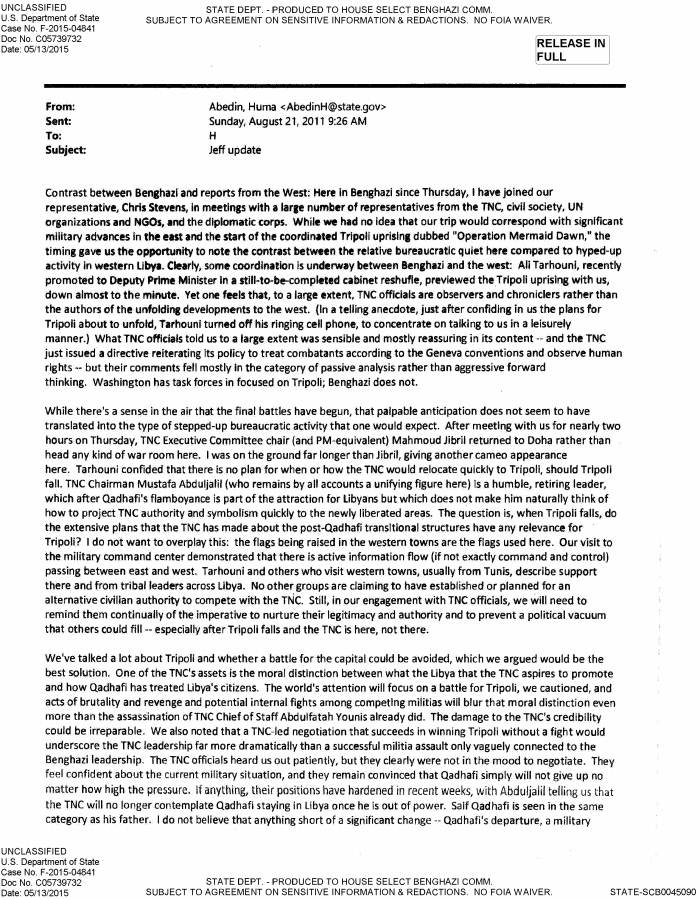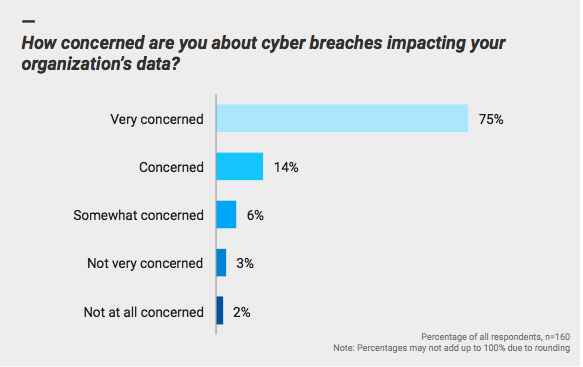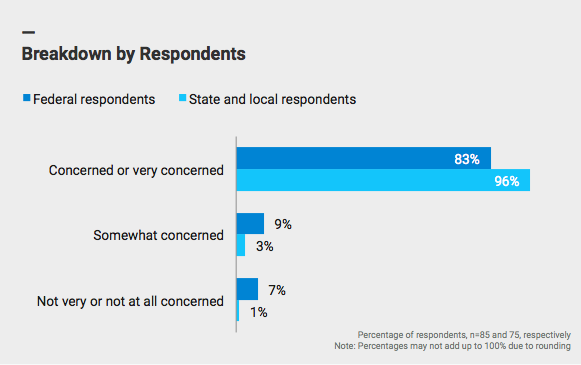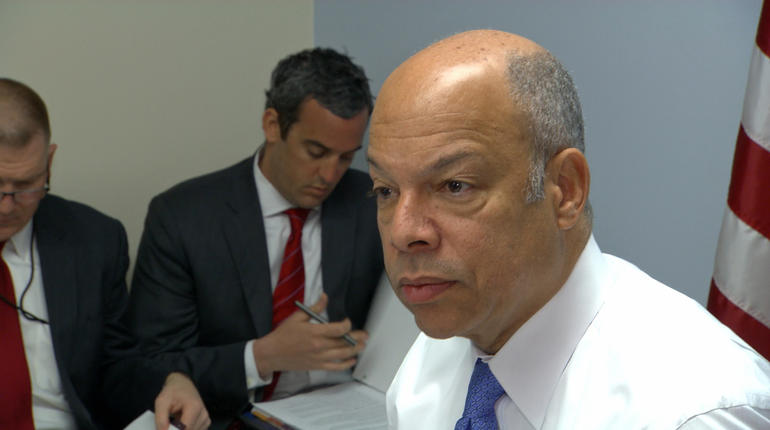Exclusive: Documents Confirm Leak of Unexplained Deposits to Nisman’s US Bank Account
Documents obtained exclusively by LobeLog confirm that Argentine officials violated an agreement with the US Treasury Department by leaking sensitive financial information regarding deceased prosecutor Alberto Nisman. These leaks could complicate further US-Argentine cooperation in the controversial investigations surrounding Nisman’s death.
The leaks exposed a number of suspicious financial transactions involving a New York bank account maintained by Nisman since March 2002. Argentine authorities are currently investigating the possibility that the account was used for money laundering, while a separate inquiry attempts to determine the cause of Nisman’s death.
Argentine investigators have previously hypothesized that some of the deposits in Nisman’s New York account could be linked to a group of US investors, including some prominent funders of conservative political causes, who have been locked in a years-long legal battle with Argentina over the country’s debt.
And media reports have recently surfaced that appear to confirm that Nisman received questionable payments through a separate bank account in Uruguay from a company owned by US billionaire Sheldon Adelson, one of the most influential fund-raisers on the American conservative political scene.
Neither the money laundering investigation nor the inquiry into Nisman’s death has yet reached an official conclusion. But the information contained in the documents obtained by LobeLog, combined with a months-long investigation, sheds new light on a case that Argentine journalist Uki Goni wrote has “enough twists and turns to satisfy the most avid conspiracy theorist.”
Suicide or Murder?
When Nisman was found dead in his apartment on January 18, 2015, the news made headlines around the world. For more than a decade, the prosecutor had led the investigation into the 1994 bombing of the headquarters of the Argentine Jewish Mutual Association—AMIA, by its Spanish acronym—the deadliest anti-Semitic attack in Latin American history.
In 2006, Nisman formally charged several high-level Iranian officials with masterminding the bombing. Just days before he died, he had accused the administration of former Argentine President Cristina Kirchner of making a pact with the Iranians in 2013 to set aside their alleged involvement in the AMIA attack in exchange for closer economic ties between the two countries.
The day before Nisman was scheduled to testify about his allegations in an emergency session of congress, he was found dead in his bathroom with a single gunshot wound to his head.
Many observers have speculated that Nisman’s death relates in one way or another to his involvement in the AMIA case, especially given the nature and timing of the accusations he lodged against the Kirchner government. Kirchner herself has suggested that rogue elements of the country’s now-disbanded and reconstituted intelligence service murdered Nisman in order to destabilize her government.
On the other hand, Argentine journalist Facundo Pastor recently published a book suggesting that Nisman killed himself after realizing the weakness of the evidence for his allegations. “He spent two years confronting the government,” Pastor told The Independent, “but the day comes to present his case and Nisman realises that he has nothing.”
An Argentine federal judge dismissed Nisman’s charges against the Kirchner administration soon after the prosecutor’s death. The country’s recently inaugurated president Mauricio Macri has promised not to appeal a separate ruling by an Argentine court that declared the 2013 agreement with Iran unconstitutional.
Argentine government investigators still have not determined whether Nisman’s death was a suicide or a murder, but members of Nisman’s family have questioned several aspects of the government’s inquiry so far. And adding yet another twist to an already convoluted story, the late prosecutor’s ex-wife, Sandra Arroyo Salgado, who serves as a federal judge in Argentina, has maintained that Nisman was assassinated for “economic motives.”
Money Laundering
Arroyo Salgado revealed the existence of Nisman’s New York bank account to Argentine authorities in March 2015. Nisman’s mother, Sara Garfunkel, and his sister, Sandra Nisman, were listed as signatories on the account, as was Diego Lagomarsino—the technology expert who worked in Nisman’s office and admitted to giving the late prosecutor the gun that apparently killed him.
Shortly after Arroyo Salgado’s revelation, the Financial Information Unit (UIF) of the Argentine Justice and Human Rights Ministry asked for money laundering charges to be brought against Lagomarsino, who had reportedly sent half his monthly salary to the New York account. Soon after Lagomarsino was charged, Garfunkel and Sandra Nisman were also indicted for their alleged involvement in laundering funds through the account.
In April, the federal judge then in charge of the case, Rodolfo Canicoba Corral, requested information on the alleged money laundering from US authorities. According to the documents obtained by LobeLog, the Treasury Department’s Financial Crimes Enforcement Network (FinCEN) “shared sensitive financial information with the UIF on Argentinian [sic] subjects associated with the deceased prosecutor and their joint investment account at Merrill Lynch in New York, and other accounts in Uruguay and other countries.”
“Since the [Argentine] courts’ requests for information from the US Department of Justice (DOJ) were taking too long,” the document continues, the head of the UIF, Jose Alberto Sbatella, “was asked by Argentine Federal Judge Canicoba Corral to ask for FinCEN’s permission to incorporate FinCEN’s relevant report in the case file so that it could be used as evidence in court.”
On July 7, Argentine news outlet Infobae reported that it had gained exclusive access to documents related to the money laundering case. A few days later, on July 16, Infobae reported that Sbatella had turned over the FinCEN report to Canicoba Corral, and that the judge was seeking to incorporate it as evidence in the proceedings. (This request was granted in September.)
Then, on July 27, the Buenos Aires-based news outlet Pagina/12 published an article titled “Nisman and his incredible financial relations,” which revealed previously unknown details about suspicious transactions involving Nisman’s New York account.
Several other media reports followed that contained information apparently provided by FinCEN to the UIF, which had in turn handed it over to Canicoba Corral, who was removed from the case in November after making prejudicial statements to various media outlets about the defendants’ alleged guilt.
Anatomy of a Leak
A US State Department employee sent an email with an English translation of the Pagina/12 article to colleagues at the Treasury Department on August 6, captioning it with the message, “It now appears indisputable that Argentine authorities, in violation of their agreement with Treasury, have leaked information about Alberto Nisman.”
Argentine news outlet Perfil subsequently published a front-page report on August 23 titled, “Nimsan received almost $600,000 in the US from nine suspicious depositors.” The English-language Buenos Aires Herald followed up the story the next day with a piece headlined, “Suspicious transfers raise more questions on Nisman.”
On August 24, a State Department employee sent another email to colleagues at the Treasury Department with links to both above-mentioned articles.
“[I] wanted to make sure you or you successor at Treasury saw that the story below made the front page of Perfil this weekend and was picked up by the [Buenos Aires] Herald today,” the message reads in part. The author then asks, “Is this just rehashing of an old story or something new?”
The documents—obtained by LobeLog from the Treasury Department via a freedom of information request—are almost entirely redacted, making it impossible to tell what, if any, response Treasury employees provided to the State Department emails.
The Treasury Department and the State Department declined to comment for this story, as did the US Department of Justice. The latter claimed through a spokesperson that the “investigation is a matter of Argentine jurisdiction and, therefore, any inquiries should be directed to Argentine authorities.” LobeLog sought comment from the Argentine Ministry of Justice and Human Rights, but did not receive a response.
Unexplained Transactions
The August 23 article from Perfil, based on information reportedly provided by US financial investigators to their Argentine counterparts, detailed nearly $600,000 in suspicious deposits made to Nisman’s New York bank account between 2012 and 2014.
Officials from the UIF had previously speculated that some of that deposits could have originated from the “holdouts,” a group of investors who have refused Argentina’s debt restructuring offers, and who stand to make billions of dollars if they prevail in the related legal dispute that is currently playing out in U.S. courts. One of the most prominent “holdouts” is NML Capital, owned by billionaire hedge fund manager and Republican Party power broker Paul Singer.
Since Nisman’s death, lobbying groups with ties to the “holdouts” have funded efforts to promote his work on the AMIA case. While the prosecutor was alive, these organizations spent millions of dollars on a campaign to “do whatever we can to get our government and media’s attention focused on what a bad actor Argentina is,” in the words of one group’s executive director.
An independent investigation by LobeLog did not reveal any definite links between the “holdouts” and the depositors identified by various news reports. However, the timing of some of the transactions does appear to coincide with important developments related to the debt dispute.
One example is that of “Joseph Gestetner,” who deposited $10,000 in Nisman’s account on September 13, 2012. Perfil reported that his name “does not appear in official records.” When contacted for comment, New York-based public relations professional and Orthodox Jewish community activist Yossi Gestetner—sometimes known as Joseph—denied that the documents obtained by Perfil referred to him.
Public records searches similarly turned up little information about “Daniel Benayon,” who transferred $15,000 to Nisman’s account on the same day as the transfer from Gestetner. A Facebook profile indicates that a man named Daniel Benayon lived in Argentina and worked for a Buenos Aires-based Orthodox Jewish organization, but messages seeking comment from this individual did not receive a response.
One of the largest single deposits revealed by Perfil came from “RODFA Limited,” which transferred $134,975 to Nisman’s New York account on September 14, 2012—the day after the deposits from Gestetner and Benayon.
Public records research uncovered that the company was incorporated in March 2012 in Hong Kong, listing “Rodrigo Martin Ferreiros” and “Facundo Pla” as signatories on the incorporation documents. (The name RODFA appears to derive from the first several letters of the two individuals’ names.)
A document filed with the Hong Kong Companies Registry notes that Pla ceased to act as director of RODFA on September 1, 2012—roughly two weeks before the deposit to Nisman’s account. A separate document indicates that Ferreiros assumed the position of director in March 2013. According to RODFA’s most recent annual filing, Ferreiros, who listed a Buenos Aires address in the document, continued to serve as director of RODFA as of March 2015.
Infobae reporter Andres Ballesteros revealed that the Argentine Senate briefly employed an individual named Rodrigo Martin Ferreiros from September to December 2013. However, efforts to uncover more detailed information about Ferreiros and Pla, as well as attempts to contact them for comment, were unsuccessful.
The series of deposits from September 13 and 14, 2012—totaling roughly $160,000—occurred at the same time that an important discussion of the Argentine debt situation was unfolding at a meeting of the “Paris Club,” an informal group of financial officials from various countries tasked with helping resolve disputes between creditors and debtor nations. The deposits also coincided with mass anti-government protests in Argentina against the administration of then-president Cristina Kirchner.
More Mysterious Deposits
In addition to the transfers described above, Perfil also revealed a $50,000 deposit to Nisman’s account from “Guillermo N. Salemi” [sic] on August 21, 2014, as well as another deposit of $50,000 made the same day from a firm called “Las Tierras USA.” An individual named Guillermo N. Salimei [sic] is listed as the registered agent of three active companies incorporated in the Miami area in 2013, including Las Tierras USA.
When contacted for comment, the registered president of Las Tierras, Agustin Misson, confirmed that he was a “friend” of Salimei, but claimed that he did not know how to get in touch with him. Misson also said he knew nothing about the bank transfers. Further attempts to reach Salimei for comment were not successful.
On August 21, 2014, the same day as the transfers from Salimi and Las Tierras, a $10,000 deposit was made to Nisman’s account by an entity referred to as “Iungelson (from Israel).” Perfil reported that “Iungelson” may refer to a member of Nisman’s extended family, but LobeLog was unable to determine whether the name refers to an individual or an organization.
On August 22, 2014—the day after the Salimei, Las Tierras and Iungelson transfers—Nisman’s account received a $50,000 deposit from “Vivaterra SA,” whose name matches that of a South American travel agency based in Brazil. LobeLog made initial contact with a representative of the firm’s Argentina office, but repeated requests for comment went unanswered.
This series of deposits—also totaling $160,000—were made less than two weeks after the Kirchner administration announced that it would sue the United States in the International Court of Justice over a ruling by US judge Thomas Griesa that ordered US banks not to process any of Argentina’s payments to its debt-holders until the country also agreed to pay the “holdouts.” The bulk of these payments came on August 21—the same day that Griesa ruled against a proposal by the Argentine government intended as a workaround to his previous decision.
Further Twists and Turns
The name of yet another mysterious figure has also surfaced in connection with Nisman’s New York account: Claudio Picon, the owner of the Argentine packaging business Palermopack. Picon’s brother and business partner Fabian Picon is the son-in-law of Hugo Anzorreguy, the former head of Argentina’s intelligence service who is now on trial for his alleged role in facilitating a bribe to a key witness in the AMIA case.
Perfil reported last June that Claudio Picon deposited $200,000 in Nisman’s account in July 2012, around the time of crucial hearings in the US court system related to the debt dispute between Argentina and the holdouts.
In the August 23 expose, Perfil also documented transfers by Picon to Nisman’s New York account totaling $72,000 between January 2013 and March 2014—a time period during which the controversy over the debt dispute and the agreement between Argentina and Iran regarding the AMIA case reached a peak.
In addition, the Picon brothers’ company owned an Audi Q5 sport utility vehicle commonly driven by Nisman, which Claudio Picon has said he lent to the late prosecutor for free on account of their close friendship. Representatives for the Picons could not be reached for comment.
One of the most enigmatic figures mentioned in the documents obtained by Perfil is Damian Stefanini, an Argentine businessman who deposited $150,000 in Nisman’s account on October 23, 2012—less than a week before Griesa issued another ruling against Argentina in the debt dispute.
Perfil journalist Emilia Delfino reported that according to “judicial sources” Stefanini and Claudio Picon had traveled together to Sao Paulo around the time of that deposit, and that they had also traveled together to other countries, including Paraguay, Uruguay, the United States and China.
On October 17, 2014—just three months before Nisman’s death—Stefanini vanished. His car was later found abandoned near his accountant’s office in Buenos Aires, blocks away from the address listed by Ferreiros as director of RODFA.
Argentine authorities are investigating Stefanini’s disappearance as a kidnapping, but they have not yet identified any suspects. The international law enforcement organization Interpol has issued the equivalent of a worldwide missing person notice for Stefanini.
Arroyo Salgado, Nisman’s ex-wife, had been in charge of the investigation into Stefanini’s disappearance until she was recused from the case in October due to her potential for bias following the revelation of the financial link between the missing entrepreneur and her late ex-husband. Arroyo Salgado has indicated that she will appeal that decision.
Murky Outlook
The leak of information provided in confidence by US authorities to their Argentine counterparts could complicate further cooperation between the United States and Argentina regarding the investigations into Nisman’s death and the money laundering that allegedly occurred using his New York bank account.
At the same time, the recent election of Mauricio Macri as Argentina’s president could help improve the country’s often-strained relations with the United States. Following Macri’s victory, US congressional Representatives Ed Royce (R-CA) and Eliot Engel (D-NY) called for the US to “prioritize” its relationship with Argentina, saying the two nations “should be natural partners.”
When Macri announced his intention not to appeal the decision voiding the 2013 Argentine-Iranian agreement, the Twitter account of the foreign affairs committee of the House of Representatives posted a message signed by Royce that read, “Glad to see #Argentina has scrapped this disturbing pact w/ #Iran.”
It remains to be seen, however, whether an improvement in overall US-Argentine relations would also include a deepening of cooperation on the Nisman case, especially given the previous breach of trust.
In fact, the US Department of Justice recently declined a request to turn over Nisman’s electronic communication records to Argentine prosecutor Viviana Fein, who was leading the investigation into the late prosecutor’s death. Judge Fabiana Palmaghini has since replaced Fein as head of the investigation, and has made it clear that she intends to closely examine the possibility that Nisman may have been murdered.
As several observers and commentators have previously noted, Nisman is only the latest in a long line of high-profile Argentine figures who died suddenly under mysterious circumstances. Controversy continues to surround many of these previous cases years after the investigations ended. And even the AMIA case itself remains unsolved, despite the passage of more than two decades since the attack.
This history suggests that a full accounting of Nisman’s death—whether it was tied to his work on the bombing or to the suspicious deposits, or whether those two threads of the story relate to one another—will not be forthcoming any time soon.




